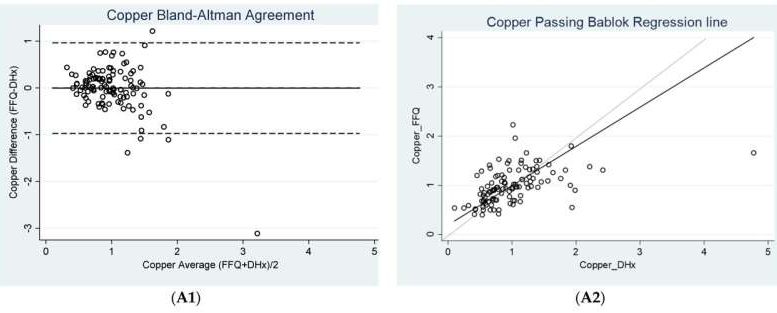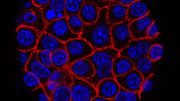According to Flinders University researchers, a new dietary tool to swiftly and precisely test micronutrient levels seeks to help cancer patients fight disease, paving the path for better nutritional solutions for oncology services.
Cancer is the biggest cause of death worldwide, with 10 million deaths and 19.3 million new cases in 2019. Chronic inflammation is a risk factor for cancer.
“Dietary intake, particularly anti-inflammatory micronutrient consumption, can play a role in both cancer initiation and treatment-related outcomes experienced by patients receiving systemic cancer therapy,” says Mitali Mukherjee, a Ph.D. candidate at Flinders University and an accredited practicing dietitian at Flinders Medical Centre.
“In oncology, diet and nutritional choices are critical and should be carefully maintained. “Dietary micronutrient intakes are infrequently examined in a clinical environment,” she adds, adding that some cancer patients don’t have their diet history checked unless they are losing weight or are referred to a dietician.
“Our 21-item meal frequency questionnaire for 14 common micronutrients, which was tested on 112 cancer patients, can be completed in around 10 minutes and could be used to assess patients with poor micronutrient intakes.”
“We think it will pave the way for dietary counseling in clinical practice and future observational research with chemotherapy and immunotherapy cancer therapies,” says the study’s lead author.
Ms. Mukherjee aims to broaden the study by using the tool to assess the validity of anti-inflammatory foods among oncology patients receiving systemic treatment, along with other SA Health and Flinders University experts such as Professor Michelle Miller and medical oncologist Dr. Shawgi Sukumaran.
Copper, iron, vitamins A, E, and D, alpha-linolenic acid, long-chain omega 3 fatty acids (LC n3-FA), arginine, glutamic acid, isoleucine, leucine, and valine were among the 12 nutrients examined by the instrument.
“More research is needed to see if micronutrient intakes and an anti-inflammatory diet might help modify the tumor microenvironment, minimize inflammatory side effects, and immune-related adverse events,” adds senior author Dr. Sukumaran.
Dietary variables have been linked to an increased risk of cancer, including breast, colorectal, head and neck, lung, and prostate cancers. Side effects, chemotherapy, and other cancer treatment options are all influenced by dietary considerations.
Previous research has demonstrated the benefits of a Mediterranean or less processed or refined diet rich in fruits and vegetables, lean meats, fish, whole grains, and healthy fats, as well as a lower dietary inflammatory index score.
There is currently no validated tool for measuring micronutrient intakes in a clinical environment, according to Ms. Mukherjee. “Collecting extensive dietary information from a diet history and evaluating it with Foodworks software to determine micronutrient intakes can take up to two hours,” she explains, “which is generally not possible in clinical practice.”
The study was published in Nutrients and titled “Validation of a Short Food Frequency Questionnaire to Measure Dietary Intake of a Selection of Micronutrients in Oncology Patients Undergoing Systemic Therapy.”






I gotta bookmark this site it seems very beneficial very beneficial
I do not even know how I ended up here, but I thought this post was good. I don’t know who you are but certainly you are going to a famous blogger if you aren’t already 😉 Cheers!
I would like to thank you for the efforts you’ve put in writing this blog. I am hoping the same high-grade web site post from you in the upcoming as well. In fact your creative writing skills has inspired me to get my own blog now. Really the blogging is spreading its wings rapidly. Your write up is a good example of it.
It is really a great and helpful piece of information. I am glad that you shared this useful information with us. Please keep us up to date like this. Thank you for sharing.
Attractive component of content. I just stumbled upon your blog and in accession capital to claim that I get in fact enjoyed account your weblog posts. Anyway I’ll be subscribing to your augment and even I achievement you get entry to persistently quickly.
you are in point of fact a good webmaster. The web site loading pace is amazing. It sort of feels that you are doing any unique trick. Moreover, The contents are masterwork. you have performed a fantastic task on this topic!
Real excellent visual appeal on this website , I’d value it 10 10.
hey there and thanks for your info – I’ve certainly picked up anything new from proper here. I did however experience several technical issues using this website, as I skilled to reload the web site a lot of occasions previous to I may just get it to load properly. I have been thinking about in case your web host is OK? No longer that I’m complaining, but sluggish loading circumstances instances will very frequently affect your placement in google and can injury your quality rating if ads and ***********|advertising|advertising|advertising and *********** with Adwords. Anyway I’m adding this RSS to my e-mail and could look out for much more of your respective fascinating content. Ensure that you replace this again soon..
Hi there! This is my first comment here so I just wanted to give a quick shout out and say I genuinely enjoy reading your posts. Can you suggest any other blogs/websites/forums that deal with the same subjects? Thanks for your time!
Some truly nice and useful info on this site, too I believe the style and design has got wonderful features.
I relish, result in I discovered just what I used to be having a look for. You have ended my 4 day lengthy hunt! God Bless you man. Have a nice day. Bye
Great post, you have pointed out some excellent details , I as well believe this s a very great website.
Regards for helping out, good information.
I know this if off topic but I’m looking into starting my own weblog and was curious what all is required to get set up? I’m assuming having a blog like yours would cost a pretty penny? I’m not very web smart so I’m not 100 sure. Any tips or advice would be greatly appreciated. Cheers